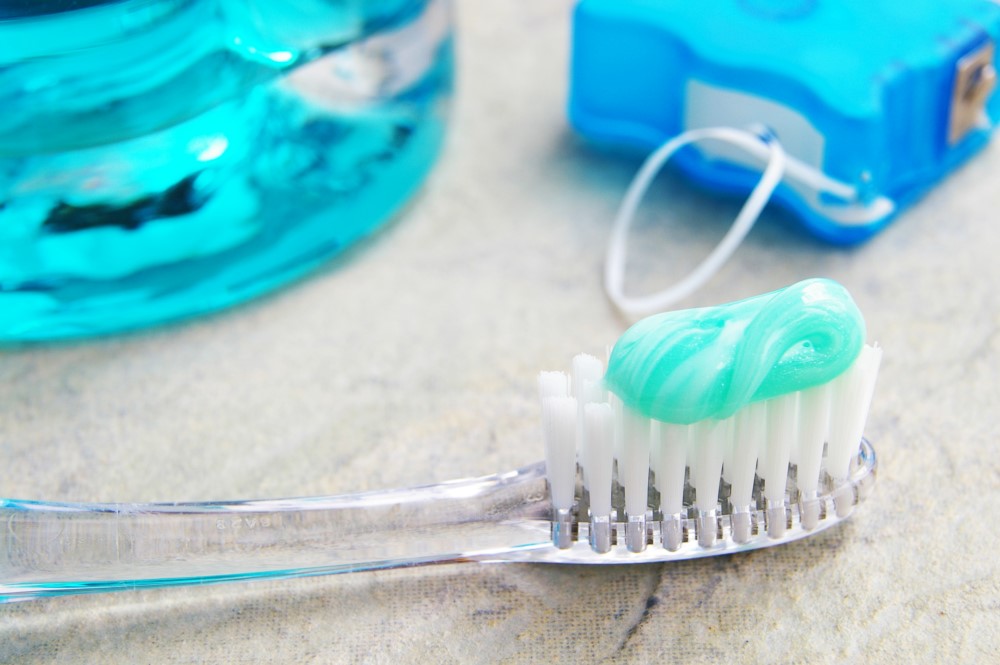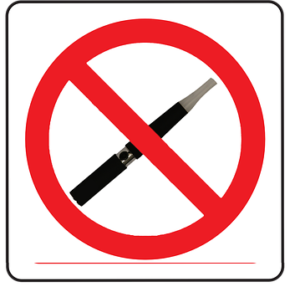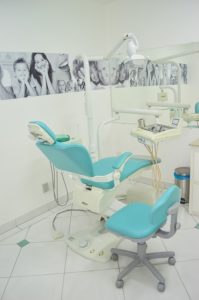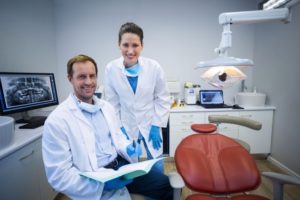Tag: Dentist 60172
April 20, 2020
Roselle IL Dentist | Say Cheese!

It has long been known that dairy products contain high amounts of calcium, which is important for developing and maintaining strong teeth and bones. However, not all dairy works in the same ways. Did you know that a recent study has found that cheese can actually help protect teeth against cavities?
How does cheese prevent cavities?
Eating cheese helps stimulate the production of saliva in your child’s mouth, which washes away sugars, acids, and bacteria on their teeth. Additionally, cheese is a great source of both calcium and phosphorous, which can help strengthen tooth enamel. What’s more, the scientists who performed the study found that some of the other compounds found in cheese seem to adhere to tooth enamel, further protecting the teeth from acids in the mouth.
Are all cheeses the same?
No, some cheeses are healthier for your family than others. To get the greatest benefit from your child’s cheese intake, stick with real cheese varieties, rather than processed cheeses. American cheese, cheese dips, and pre-packaged cheese products, such as those found in jars or spray cans, have added sugars to enhance their flavor. These sugars can be harmful to teeth, rather than protecting them. In addition, these types of cheese products contain a significantly reduced amount of actual cheese content. These processed cheeses can even wear down tooth enamel, increasing risk of decay.
What kinds of cheese should I give my child?
There are hundreds of types of real cheese available, which are packed with calcium and great for tooth protection. If your child enjoys aged cheeses, Cheddar, Swiss, Monterey jack are all tasty options. If he or she prefers softer cheeses, Mozzarella, Brie, or Camembert may be a great way to make your child smile. Gorgonzola, Roquefort, and other similar cheeses have much to offer for a child with a more expansive palate.
What if we’re on a low-fat diet?
Good news! The fat content of your cheese choices do not affect its ability to protect your child’s teeth. The low-fat or non-fat versions of your child’s favorite varieties of cheese contain just as much calcium, phosphorous, and other tooth-protecting compounds as the full-fat varieties.
With so many great options to choose from, consider offering your child cheese instead of sugary or starchy options for a snack or end of meal treat. Cheese tastes great and is healthy for your child and their teeth. For more ideas for healthy snacking, contact our dental office.
Resource: https://www.sciencedaily.com
April 10, 2019
Dentist in Roselle | 5 Interesting Dental Facts
Dentist Near Me

Did you know your oral health can impact your overall health? We’ve compiled a list of 5 tidbits about your teeth and oral health.
Say Cheese
Cheese has been found to promote dental health by helping prevent tooth decay. The calcium and phosphorus found in cheese help neutralizes acid in the mouth. Acid can create dental erosion, which can cause decay that may require filling. Cheese creates a protective film around teeth and helps remineralize the enamel.
Keep Smiling
Your smile can make a difference. Studies have found that 50% of people consider a smile the first facial feature they notice. One study found that 88% of us remember people with beautiful smiles whenever we meet new people. This means attractive smiles are key to being more noticeable and remembered.
Toothbrush Time
Don’t forget to replace your toothbrush at least once every three months. You should get a new toothbrush after recovering from any sort of viral infection, flu, or cold. You are more likely to be re-infected if these bacteria implant themselves on the bristles.
You’re Unique
In your lifetime, you only get two sets of teeth— baby teeth and permanent teeth. It is important to take proper care of your permanent teeth. Did you know that no two people have precisely the same set of teeth? Your teeth are as unique as a fingerprint. This is the reason teeth are used by investigators for identification. Your tongue also has a unique print, though it is not commonly recorded.
F.Y.I on Floss
Floss is a lot more useful than you may think. If you skip out on your daily flossing, you can miss cleaning up to 40% of your tooth surfaces. Flossing can also help prevent gum disease by removing plaque near the gum line. Floss has other alternative creative uses. The next time you are looking for a fun holiday project, grab some dental floss and a handful of cereal to string for the tree. Floss works well for repairing a bead necklace too!
Bonus Fact: Health professionals are rated among the most trusted people in the U.S so make sure to call our dentist and make an appointment today!
Address: 1260 W Lake St, Roselle IL 60172
Phone: (630) 980-6762
December 5, 2018
Roselle Dentist | What to Know About E-Cigarettes and Your Oral Health
Dentist Near Me
 The hazards surrounding vaping are not entirely clear. More research is needed in this area, but a recent study indicates that e-cigarette vapors could be damaging to your mouth. Here’s what you need to know.
The hazards surrounding vaping are not entirely clear. More research is needed in this area, but a recent study indicates that e-cigarette vapors could be damaging to your mouth. Here’s what you need to know.
The Vapor Ingredients
Electronic cigarettes are not regulated in the same way tobacco cigarettes are, meaning that their contents can be inaccurately labeled without any oversight. Contents that e-juice usually contains include nicotine, glycerin, chemical flavoring, and propylene glycol. Some of these substances are safe in food, such as chemical flavors, but the effects of inhaling them is not well researched. Heating these chemicals can form dangerous carcinogens such as formaldehyde. E-cigarettes might also include tiny metals and particles that you inhale while smoking.
What This Means for Your Oral Health
A recent study from UCLA found that vapors from an e-cigarette can kill the cells in your oral cavity, or the area of your mouth beyond your teeth and gums. The study placed oral cells in an environment where electronic cigarette smoke was produced for 24 hours, in a machine simulating how a person would smoke. During the test, 85% of the cells died. According to the lead author of the study, they plan to move forward to test the impacts in humans.
These cells are your mouth’s defense by helping to release antioxidants. As the cells die off or become less effective, your mouth becomes more vulnerable to oral diseases.
Another study by the University of Rochester Medical Center concluded e-cigarettes are just as bad for your gums as tobacco cigarettes are. Nicotine, which both types of cigarettes contain, is a known factor in contributing to gum disease.
Steps You Can Take
Since the e-juice industry is largely unregulated, it is best to avoid smoking electronic cigarettes. The carcinogenic contents pose serious risks to your health, especially to your mouth. Your mouth relies on the functions of these important cells to defend itself against dangerous bacteria and other substances. Without your mouth’s natural defense system, you open yourself up to oral disease.
Make sure you are regularly visiting our office, especially if you are a smoker of either tobacco cigarettes, or electronic cigarettes. Our experienced dental team will perform a complete oral examination during your visit to check for signs of oral disease. Being proactive is your best defense against combating oral disease.
For more tips on keeping your mouth healthy or to schedule your next visit, please contact us.
1260 W Lake St
Roselle IL 60172
(630) 980-6762
November 14, 2018
60172 Dentist | Understanding Periodontal Disease
Dentist Near Me
 Maintaining your gum health is vital to your overall health. When you visit our office for an examination, our trained hygienists perform a periodontal exam. In fact, during your examination, our team is quietly assessing your oral health by performing a number of checks. Here’s what you need to know about periodontal disease.
Maintaining your gum health is vital to your overall health. When you visit our office for an examination, our trained hygienists perform a periodontal exam. In fact, during your examination, our team is quietly assessing your oral health by performing a number of checks. Here’s what you need to know about periodontal disease.
Many Names, One Illness
You may have heard periodontal disease referred to as gum disease or gingivitis. Periodontal disease is the inflammation and infection of your gums. These names are frequently used interchangeably.
Signs & Symptoms
Periodontal disease may be marked by swollen and red gums. Bleeding, especially while brushing and flossing, may also occur. Another symptom of periodontal disease is persistent bad breath. If you experience any of these symptoms regularly, please contact our office.
Periodontal Disease Can Impact Your Overall Health
Your gum health is linked to your overall health. If left untreated, periodontal disease can lead to bleeding gums, gum recession, and tooth loss. The effects of periodontal disease extend well beyond your mouth. In fact, according to the American Academy of Periodontology, the disease can increase your risk of developing heart disease, diabetes, and stroke.
While you may think of your teeth as the primary reason to visit our office for a regular examination, understand that our team is looking beyond your teeth to assess your oral health and potential impacts on your overall health. Talk to our experienced team if you experience any signs or symptoms of periodontal disease. Our team is trained to identify signs of periodontal disease. When detected early and managed properly, periodontal disease is treatable.
For more information regarding your gum health, please contact our office, or schedule a visit to see us.
Address: 1260 W Lake St, Roselle IL 60172
Phone: (630) 980-6762
August 15, 2018
60172 Dentist | Ow! Your Guide to Canker Sores
Dentist Near Me
 A canker sore can make eating, drinking, and talking difficult and even painful. Maintaining your oral health by brushing and flossing may also be difficult with a sore in your mouth, but keeping up with your daily oral hygiene routine is an important step in the healing process. We’ve put together a short guide to everything you need to know about canker sores.
A canker sore can make eating, drinking, and talking difficult and even painful. Maintaining your oral health by brushing and flossing may also be difficult with a sore in your mouth, but keeping up with your daily oral hygiene routine is an important step in the healing process. We’ve put together a short guide to everything you need to know about canker sores.
What do they look like?
Canker sores are usually small, round reddish sores. You’ll find them on the soft tissues of your mouth, such as your tongue, the sides of your mouth, and at the base of your gums. Occasionally, a sore might have a yellow or white colored center.
What causes them?
Among the most common causes of canker sores are injuries. This can happen from biting your lip or cheek, an injury from sports, or even vigorous brushing. Certain people are sensitive to toothpastes containing sodium lauryl sulfate, leading to sores. Foods may also cause canker sores in certain people. Chocolate, eggs, nuts, and spicy foods have been known to cause the sores. At times, a diet that is deficient in vitamin B-12 or zinc is the culprit.
What can I do?
Your best defense is to keep your mouth healthy. This means keeping up with your twice-daily brushing and daily flossing. With a mouth sore, it may be tempting to avoid the area when brushing your teeth. This can lead to a buildup of plaque and bacteria. Aid the healing process by keeping your mouth clean and healthy. You may also try a mouthwash formulated for mouth sores. When in doubt, or if pain persists, talk to our team.
Brush thoroughly but gently around sores. Most canker sores heal within a week. If you find you are regularly getting sores, or they are taking longer than one week to heal, schedule a visit to our office. We will assess your oral health and provide you with our expert advice.
For more information about oral health or to schedule your next visit, please contact our office. We look forward to seeing you.
1260 W Lake St
Roselle IL 60172
Phone: (630) 980-6762
June 7, 2018
Dentist Roselle | An Important Reminder About Your Next Dental Appointment
Dentist Near Me
 At times, life can seem to move quickly. Between work, school, sports, and social events, it can seem there is little time left for you and your health. It’s imperative for a healthy mouth and body to always have your next dental appointment scheduled and to prioritize this care. Our team will work with you to find the most convenient day and time for you. If you need to reschedule, we will do our best to accommodate you. Advanced notice of a change is greatly appreciated, whenever possible. Missed appointments without notice are harmful to our practice, as we’ve reserved your appointment time exclusively for you.
At times, life can seem to move quickly. Between work, school, sports, and social events, it can seem there is little time left for you and your health. It’s imperative for a healthy mouth and body to always have your next dental appointment scheduled and to prioritize this care. Our team will work with you to find the most convenient day and time for you. If you need to reschedule, we will do our best to accommodate you. Advanced notice of a change is greatly appreciated, whenever possible. Missed appointments without notice are harmful to our practice, as we’ve reserved your appointment time exclusively for you.
Missed dental appointments can lead to worsened oral and overall health. Whether receiving preventive or restorative care, if left without professional treatment, plaque and decay will progress and the state of your oral health will likely decline. Some of our patients are predisposed to more frequent oral health issues. Many times, these guests prefer more frequent office visits. Please know this is an option for you as well. Investing in one extra cleaning each year can often prevent more costly concerns.
We know it can be tempting to skip your dental appointment. Perhaps you’d rather be relaxing at home or you’ve had a last-minute obligation arise. Please make every effort to prioritize your healthy smile, as it significantly contributes to your overall health.
Westlake Dental Care of Roselle
1260 W Lake St, Roselle, IL 60172
(630) 980-6762
May 3, 2018
Dentist 60172 | Do I Really Need an Exam?
 It’s highly likely that after visiting our practice, you understand the value of a thorough, professional dental cleaning. It’s also likely that you may not fully understand the importance of a complete exam and radiographs.
It’s highly likely that after visiting our practice, you understand the value of a thorough, professional dental cleaning. It’s also likely that you may not fully understand the importance of a complete exam and radiographs.
There are many reasons the exam is an important part of your oral health routine.
1. Exams allow the doctor to evaluate for signs of health conditions. Many health conditions present early signs and symptoms in the mouth, including: Crohn’s, Addison’s, Leukemia, Diabetes, Lupus, Anemia and many others. Skipping an exam could prevent your dentist from screening for oral manifestations of systemic disease.
2. According to research, one American dies every hour from oral cancer. A thorough complete examination can catch early signs of oral cancer, allowing for early treatment, which can be key to survival.
3. Periodontal disease is the leading cause of tooth loss and is related to serious systemic health conditions such as heart disease and stroke, among many others. Evaluating your soft tissue and bone health allows our team to identify early signs of periodontal disease, which can allow for prevention and early treatment. This is vital for your oral and overall health.
4. Radiographs provide valuable insight. Decay and other oral health issues are often hidden from the human eye. Radiographs (X-Rays) allow us to find what we could not otherwise see, allowing for early treatment and less invasive solutions.
Whether it has been 6 months or 6 years since your last appointment, please do not hesitate to contact us. We’re here for you and your heath and comfort are our main concerns.
Westlake Dental Care of Roselle
1260 W Lake St, Roselle, IL 60172
(630) 980-6762
April 5, 2018
Dentist Roselle, IL | 3 Steps to a Healthy Smile
Dentist 60172
 Did you know that tooth decay is the single largest cause of school absences? The longer decay goes untreated, the worse it gets. Not only can this mean costlier expenses for you, but it also jeopardizes your child’s oral health and education. You can help your child have a healthy, happy smile by taking a few steps to defend against tooth decay. Here are three steps you can take at home.
Did you know that tooth decay is the single largest cause of school absences? The longer decay goes untreated, the worse it gets. Not only can this mean costlier expenses for you, but it also jeopardizes your child’s oral health and education. You can help your child have a healthy, happy smile by taking a few steps to defend against tooth decay. Here are three steps you can take at home.
Reduce Excessive Sugar
Sugary foods feed the bacteria that cause tooth decay. Limit your child’s sugary intake by keeping candy, soft drinks, juices, and other sweets to a minimum. If your child does indulge in a sugary snack or treat, make sure they brush their teeth afterwards.
Follow a Consistent Brushing Routine
One of the best steps you can take for your child is to help them establish a daily brushing routine. They should brush for at least two minutes both morning and night. Try brushing at the same times each day so that it becomes a habit. We also strongly recommend that parents monitor their children to make sure they are brushing correctly and safely. It’s important that children avoid swallowing toothpaste or mouthwash.
Strengthen Teeth with Dairy Products
Dairy products are excellent sources of calcium, particularly cheese, yogurt, and milk. Calcium helps to build strong bones and teeth. Increasing the amount of calcium in your child’s diet can help strengthen tooth enamel, one of the natural defenses against decay. If your child is lactose intolerant or cannot consume other dairy products, we suggest you talk to our team for additional solutions.
Healthy teeth start at home. Implement the three simple steps above with your child at home to ensure they have a happy, healthy smile. The single most important step you can take for your child is to bring them in to see our team. Regular oral health examinations for your child are essential to ensure that their teeth are healthy and growing properly.
Contact our team to schedule your child’s next examination today.
Westlake Dental Care of Roselle
1260 W Lake St, Roselle, IL
60172 (630) 980-6762
March 8, 2018
Dentist in Roselle, IL | One Tool for Better Gum Health
Dentist 60172
 Loose teeth, bad breath, and painful, bloody gums – these are among the signs and symptoms of periodontal, or gum, disease. Unfortunately, periodontal disease can also begin without any obvious symptoms. If left undiagnosed or untreated, you could be at risk for irreparable damage to your teeth and gums. The good news is that periodontal disease is preventable. In fact, one of the most effective tools for preventing the disease only takes a minute of your time each day.
Loose teeth, bad breath, and painful, bloody gums – these are among the signs and symptoms of periodontal, or gum, disease. Unfortunately, periodontal disease can also begin without any obvious symptoms. If left undiagnosed or untreated, you could be at risk for irreparable damage to your teeth and gums. The good news is that periodontal disease is preventable. In fact, one of the most effective tools for preventing the disease only takes a minute of your time each day.
Floss to the Rescue
Dental floss is an effective and easy to use tool that can be among your best defenses for preventing periodontal disease. Periodontal disease is caused by a buildup of plaque and bacteria. Even if your daily oral hygiene routine already includes a thorough brushing that lasts for two minutes, at least twice each day, you should be flossing daily as well. Dental floss is highly effective at cleaning areas where your toothbrush cannot reach. Small gaps and tight spaces between teeth catch food debris and sugars and acids from drinks all day long. Flossing helps to clean out these tough to reach spaces.
Facts Behind Flossing
According to a survey referenced by the American Dental Association, only 40% of Americans floss each day. The same study showed a clear link between regular intra-oral care and better oral health. Unfortunately, many people also lie about how frequently they clean between their teeth. A study from the American Academy of Periodontology found that 27% of adults lie to their dentist about their flossing habits.
Tips for Flossing Correctly
It can be confusing to figure out the best way to use dental floss. Try cutting off about 18 inches of floss and wrapping most of it carefully around your middle finger. Use roughly one inch to clean between each pair of teeth. Using your thumb and index finger, carefully slide the floss between your teeth. Floss to your gumline, but be gentle. Avoid cutting your gums. Work your way through your 18 inches of floss by using a new, clean section between each pair of adjacent teeth.
It only takes about a minute to floss your teeth each day, but these minutes contribute to a lifetime of optimal oral health. Floss is among the most effective tools at your disposal to keep your gums clean and healthy. Get into the habit of flossing your teeth regularly – your gums will thank you.
For more information about gum health, or to schedule a visit to our office, please contact our team.
1260 W Lake St.
Roselle, IL 60172
(630) 980-6762
November 8, 2017
Dentist in Roselle, IL | Oral Cancer Risk Factors
60172 Dentist
 During a comprehensive dental examination, our team will look for signs of oral cancer. Early detection is key with oral cancer. If caught early, most forms of oral cancer are treatable. Our dental team is trained and educated to identify oral cancer.
During a comprehensive dental examination, our team will look for signs of oral cancer. Early detection is key with oral cancer. If caught early, most forms of oral cancer are treatable. Our dental team is trained and educated to identify oral cancer.
Everyone is susceptible to the disease, but some groups of people are at a higher risk level than others. Here are the top seven risk factors for oral cancer.
Age
Are you in your mid 40s? Your risk of developing oral cancer increases with age. A noticeable increase is evident in people in their 40s and older. According to the Cancer Treatment Centers of America, the majority of diagnosed cases occur around the age of 62, but the average age is declining. The recent increase in Human Papillomavirus (HPV) related cases is causing more people to be diagnosed for oral cancers between the ages of 52 and 56. As the average age for oral cancer cases decreases, it is vital that you receive regular oral cancer screenings at any age.
Gender
Men are twice as likely to develop oral cancer compared to women. Part of this difference may be related to regular intake of alcohol and tobacco. According to the American Cancer Society, the gender difference is decreasing since more women are drinking and using tobacco today than in previous generations. There has also been a trend in recent years of younger men being diagnosed with HPV-related oral cancer. Both men and women should schedule regular oral health examinations to detect oral cancer early.
Tobacco
Smoking or chewing tobacco can greatly increase your risk of developing oral cancer. Tobacco can lead to cancer of the mouth or throat. Additionally, oral tobacco products cause cancers associated with the cheeks, gums, and inner surface of the lips. Development of these cancers depend on the duration and frequency of tobacco use. Non-smokers are not immune to oral cancer, so be sure to schedule an appointment with our team for an examination.
Alcohol
Among those that are diagnosed with oral cancer, about 70% of people are characterized as heavy drinkers. According to the Centers for Disease Control and Prevention (CDC), heavy drinking is defined as having an average of two or more drinks per day for men, and one or more drinks per day for women. People who drink heavily can be more than twice as likely to develop oral cancers than people who do not drink. Oral cancer can still occur in people who have never had an alcoholic drink. Contact our team to schedule an examination.
Human Papillomavirus (HPV)
This sexually transmitted disease is associated with at least 10,000 cases of oral cancer diagnosed each year in the United States. People who have HPV-related oral cancers tend to be younger and are unlikely to smoke or drink. Typically, those diagnosed with HPV-related oral cancers are at a much lower risk of death or reoccurrence. We suggest a proactive approach by maintaining regular visits to our dental office.
Sunlight
People who work outside or with prolonged exposure to sunlight have a higher risk of developing lip cancer. It is vital to use UV protection when under the sun. Many lip balms offer UV protection. If you work outdoors frequently, schedule an additional examination with our team.
Diet
Poor nutrition can increase your risk for developing oral cancer. According to the American Dental Association, reports have shown that a link exists between diets low in fruits and vegetables and a higher risk for oral cancers. However, oral cancer can develop in healthy individuals. No matter your diet, schedule a visit with our team for a comprehensive oral examination.
Oral cancer does not discriminate. While these seven factors have been tied to an increased risk of oral cancer, that does not diminish the importance of regular oral examinations for everyone regardless of their age, gender, or other factors. Regular dental examinations make it possible for our team to detect oral cancer early.
Contact our dentist to schedule a comprehensive oral examination.
1260 W Lake St
Roselle, IL 60172
(630) 980-6762

